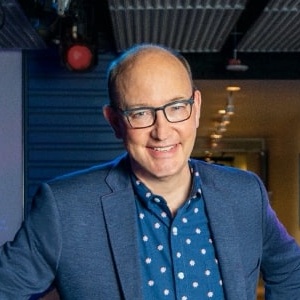Looking to missions and origins to refocus pubcasting
From time to time, “the definition of public broadcasting and public service media should be reviewed,” writes Adam Powell, of the USC Annenberg Center on Communication Leadership and Policy. “The opportunity is immense.” In his post today (Aug. 31), Powell returns to the original 1967 report of the Carnegie Commission on Educational Television to examine how the system is living up to its responsibilities. One point: “Over the air, the mission of experimentation has largely atrophied,” Powell writes. “The PBS prime time schedule is filled with programs that are decades old, so there is little room for innovation or for new programs of any kind.”
The very first public television series distributed live from coast to coast, he points out, was “different and bold” — PBL: Public Broadcasting Laboratory, which tackled “the failure of communication between the races” in its first segment. “After two seasons, PBL was canceled and replaced by The Forsythe Saga,” Powell notes, “and thus was set the pattern for public TV Sunday nights to the present day.”




While in Alaska and during my blogging days I tried very hard to get conversations going that centered on mission. It never went anywhere.
I get the feeling that most of pubcasting is basically in a deer-in-headlights situation. Upper-level managers are too comfortable (money, community esteem) to risk changing things, and have lost touch with the mission. Indeed, we have many managers today that had nothing to do with the early days of pubcasting, in the wake of the 1967 PBA idealism. They didn’t scrape their way through the 1970s and didn’t enjoy the tremendous amount of money available in the early years.
It’s always easier to just keep doing what you’re doing. It’s human nature.
Yet if public media is to mean anything in the future, it must take on a challenging mission that is rewarding for the publics it serves. Just being another TV station or rebroadcasting someone else’s audio content isn’t much of a mission these days.
So go Powell, go. But don’t get your hopes up.